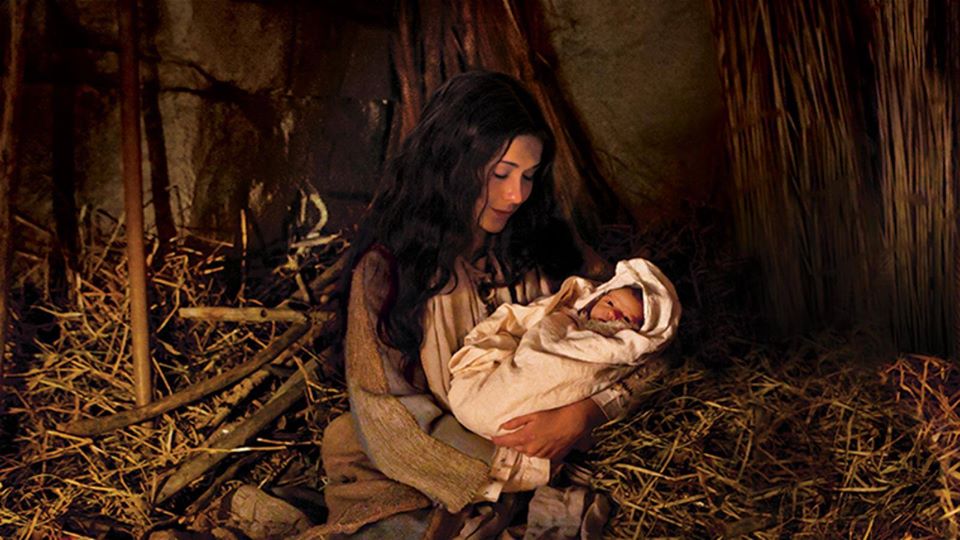In the original text of the Book of Mormon, God shows Nephi the future, and he sees a young woman. God asks, “Knowest thou the condescension of God?”
Nephi answers, “I know that he loveth his children; nevertheless, I do not know the meaning of all things.”
Then God answers: “Behold, the virgin whom thou seest is the mother of God after the manner of flesh.”
(1 Nephi 11:15-18)
From this short verse, the entire meaning of Christmas emerges, perhaps more powerfully and deeply than most other accounts of the Savior’s birth.
It begins with a word that always bothered me: condescension. It’s the idea that someone in superiority deigns to lower him or herself to my lowly level. It’s almost insulting as a word: to be condescending to someone is to implicitly put them down.
As I searched the scriptures for the idea of the condescension of god, almost all references to this from a scriptural sense are in the Latter-day Saint tradition. It’s a unique scripture. But there are some in the Christian tradition who see God’s condescension to become man as being part of a deeper, more powerful idea: that of Kenosis: God empties himself of his divinity, his all-knowing and all powerful self to become vulnerable and truly, completely human.
This idea of kenosis — emptying — is very much part of what Dan Wotherspoon and Phil McLemore spoke about in their recent Mormon Matters podcast of the Mystical meaning of Christmas — something well worth listening to.
Yet I do not think that Joseph Smith, however, had a theology of kenosis — of emptying. I sense that his spiritual muse — the one what wrote this text — was using the term in a more archaic sense: that of god descending *together* with someone (the prefix “con-“).
But with whom?
The Mother of God.
Oh sure, we can find within our LDS tradition some pretty strange ideas about Mary: that she was one of Elohim’s wives, that Elohim came down and…. well, this literalizing of the account, to me, kind of misses a much deeper principle — one which was removed from our canon when Joseph Smith, in his ever-changing understanding of the nature of god, changed Mary to being the “mother of the Son of God after the manner of the flesh”, thus demoting Mary to a consort and baby-maker, rather than a symbol of the Divine Feminine.
I have come to realize that Christmas — the celebration of Jesus’ birth — is much more significant when I realize the true *nature* of the incarnation: God becomes born through the labor of the god-bearer.
I have to let that sink in for a moment. I have to consider what it means. Language falls short.
In the Orthodox Christian traditions, Mary is called “god bearer”: in Greek, “Theotokos”. In Russian, “Bogoroditse”. But our English doesn’t quite convey the full meaning of these words. It isn’t just that Mary gives birth to Jesus, but rather, Mary *bears* God, giving God life and *incarnation*. We have no such language in English.
In Latin, we get a sense of it, “Mater Dei”. Mater. Yes, “mother”, but also the root of the word “Material”. Incarnation is “to be made flesh”. We speak of “Mother Earth” and “Mother Nature”, and other words like “Wisdom”/”Sophia” in the feminine…why is this?
Could it be that the Divine is found as it becomes real among us? Could it be that without the Material, the Spiritual has no real purpose?
Almost every religious tradition views the Mater / Material as being “less than” the Pater / Patriarchy / Spiritual. Each tradition seeks to transcend this Mater-ial existence, to say that the ideal being is, in effect, to not be. The Divine Feminine, the Mater, has been suppressed and pushed to the subordinate. Male leaders condescend — in the very patronizing sense of the word — to the women. The very word “patronizing” derives from the “Pater / Father / Patriarchy”. We speak of the natural man being an enemy to god. We speak of fallen man, the carnal mind, the suffering of this mater-ial existence.
Could the idea that the Mater-ial is inferior be evidence of patriarchal suppression of the Divine Feminine? Eve is roundly condemned in Christian traditions, but Eve, whose very name “Chavvah” means “Life-bearer”, is to our LDS theology a hero — THE hero of the garden narrative.
And in this Birth of Christ we celebrate today, Mary is the God-bearer, the second Eve, the life-bearer of God. She is Mater Dei, the Material of God, and thus in Mary, God becomes Man, so that Man can *be* God.
We have in our scripture that matter (the “Mater”) is not inferior or temporal, but rather, eternal, and spirit and matter/element, inseparably connected, achieve a fulness of joy. Whether we realize it or not, deep within our belief is the unity of spirit and body, of male and female, of heavenly and earthly. Our truth must be found in Both-And, and not Either-or. And this *joy* of the unity of spirit and matter, our divine nature and the divine feminine is the entire point of Christmas.
It gives me pause.
The Kenosis — the Condescension of God — empties my mind to receive a deeper joy and meaning.
It gives new perspective to Nephi’s response: “I know that he loveth his children; nevertheless, I do not know the meaning of all things.”
I have been guilty of focusing so much upon the male Jesus narrative of Christmas, that I have missed the true hero of Christmas. Without Mary, Jesus would not have been *born*.
And without the God Bearer
the Divine Feminine
I cannot be *reborn*.
To celebrate the Birth of Christ
is to realize the Divinity of each one of us
made only possible by the God Bearer
The Divine Feminine.
In Mary, God-bearer,
We realize the Joy of Christmas
and the unconditional Love of God.
As we become One.
